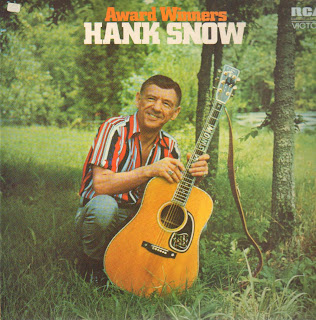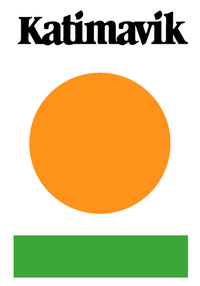From the big scrapbook of time, here’s a look at Canada in
1986—
May 1: Shirley Carr is elected president of the powerful
Canadian Labour Congress. She is the first woman to hold the position. The CLC speaks for nearly 60 percent of all
unionized workers across the country.
May 2: Prince Charles and Princess Diana are in Vancouver to
open Expo 86. The 60,000 people on hand for the ceremonies don’t appear to mind
the wind and rain any more than the royal couple.
June 4: The Prince County Hospital in Summerside will no
longer offer abortions. Women from PEI will have to travel to another province
for the procedure.
July 21: It is Hank Snow Week in Nova Scotia says Premier
John Buchanan to the 500 people gathered at a banquet in Halifax to honour the
72-year old country legend. Snow was born in Liverpool, Nova Scotia and ordered
his first guitar from the Eaton’s Catalogue.
August 12: The Canadian Medical Association requires any
doctor treating someone with AIDS to report the case to health authorities
because the epidemic outweighs doctor-patient confidentiality. A spokesman for
the CMA tells reporters there are currently 662 cases of the mystery disease
and 339 Canadians have died.
September 23: An anthropologist at the University of Alberta
tells the press that the crew members of the long-lost 1845 Franklin
expedition, found last summer, were not cannibals but died of hunger and
tuberculosis. Captain Franklin had hoped to find the Northwest Passage to China.
November 18:
Franco-Ontarians get an early Christmas present. Queen’s Park will offer
services in French as well as English. MPPs from all parties approved Bill 8
unanimously. It is expected to take three years to implement the legislation.
November 30: The
Edmonton Eskimos and the Hamilton Tiger Cats square off for Lord Grey’s Cup in Vancouver's BC Place in front of a crowd of 59,000 fans.
The Ti-Cats trounce the Eskimos, the final score is 39 to 15.
 |
| The 1986 Dodge Caravan is built in Windsor, Ontario. The minivan is so popular, a third shift will have to be added. |
January 9: Health workers attending the Ontario Hospital
Association Conference in Toronto are assured that contracting AIDS from
non-sexual contact with a patient is a very low risk.
January 20: The federal government cuts family allowances.
Critics point out that the $16 million saved this year will force many poor
families into deeper poverty.
January 22: Police investigation reveals that Air India
Flight 182 crashed as a result of a bomb exploding on board. A total of 329
people were killed—280 of them Canadians.
January 31: The
Canadian dollar hits an all-time low. Our dollar is worth only 70.2 cents US in
international markets.
 |
| It's one of the worst rail disasters in national history; 23 are dead and 71 injured. |
February 8: At 8.43 MST, a VIA Rail passenger train hits a CN freight
train head on, 17 kilometres east of Hinton, Albert.
 |
| Tommy Douglas will be voted the most important politician of the 20th Century. |
February 24: After a five-year battle with cancer, former
New Democratic Party leader Tommy Douglas is dead. Douglas was the man responsible for bring Medicare to all Canadians. Prime Minister Mulroney pays tribute, calling
him one of the nation’s “great humanitarians and a truly great
parliamentarian.”
February 27: Hockey star Jacques Plante is dead in
Switzerland at the age of 57. “Jake the
Snake’s” NHL career stretched from 1952 to 1975. He started wearing a goalie’s
mask in 1959 after an on-ice incident and made it part of everyday equipment.
 |
| The Honourable John Crosbie will be appointed as the 12th Lieutenant Governor of Newfoundland & Labrador in 2008. |
March 4: Justice Minister John Crosbie announces sweeping
changes. Mandatory retirement at the age of 65 and discrimination against
homosexuals will be illegal in all areas where Ottawa has jurisdiction.
March 10: Senator Jacques Hebert starts a 21-day hunger
strike. He is protesting Ottawa’s cancellation of the highly popular Katimavik
youth exchange programme, founded as non-profit organization by the Liberal Government in 1977.
March 15: Our women’s field hockey team beats England 3 to 1
at Wembley Stadium.
March 19: Prime Minister Mulroney and US President Reagan
ink a deal to tackle the international issue of acid rain.
 |
| Shirley Carr, 1929-2010 |
May 23: Simon Reisman
represents Canada and Peter O. Murphy represents the United States. The two men
and their teams sit down to the table and begin to negotiate the Free Trade
Agreement.
May 2: Anne Murray has another Number One song as Now and Forever (You and Me) hits the
top of the charts in the United States. The Nova Scotia songbird will sell more
than 54 million albums by 2009.
 | |
| Prince Charles and Princess Diana ride Vancouver's new SkyTrain. They are seen here at Patterson Station. |
May 2: Dr. Wilbert Keon performs the nation’s first
artificial heart transplant at the Ottawa Civic Hospital. Noella Leclair, age
42, is implanted with a Jarvik 7- 70 heart that will keep her alive until a
human heart can be found.
May 8: Health and Welfare Canada issues a warning that
people should not drink rainwater because of high levels of radioactive iodine
are present—most likely from the recent Chernobyl nuclear disaster in the
Soviet Union.
May 23: The US Department of Commerce slaps a 15-percent
tariff on cedar shakes and shingles coming into the country from Canada. The
softwood lumber dispute will become one of the longest trade ‘wars’ in
history. The London Court of International Arbitration will rule in favour of the United States in 2009.
June 1: Divorce laws in Quebec get a complete overhaul.
Marriage breakdown is now the sole reason for ending a relationship. Couples
may petition jointly to dissolve a marriage.
June 1: Canada makes its first showing at the FIFA Soccer World
Cup match. We lose to Mexico two to zip. Argentina will go on to beat England, when goalie Diego Maradona makes his famous "hand of God"goal.
June 3: Writer
Margaret Atwood receives the Governor General Award for The Handmaid’s Tale. It is her second time to receive the
prestigious prize. The science fiction story will be made into an award-winning
movie in 1990.
June --: The first Subway restaurant in Canada opens in St.
John’s, Newfoundland. In 2013 the fast
food chain will operate 2,891 restaurants throughout the country.
 |
| The Prince County Hospital in Summerside, Prince Edward Island opened in 1912. It was the first hospital in the province outside of Charlottetown. |
June 12: Doctors in Ontario walk off the job to protest
Queen Park’s legislation that forbids extra
billing for medical procedures and consultations.
billing for medical procedures and consultations.
 | ||
| June 20: He has been mayor of Montreal for 32 years but ill health forces His Worship, Jean Drapeau to announce his retirement from public life. |
 |
| Hank Snow's first guitar cost $12.95. |
August 4: Canada and five other Commonwealth countries
impose economic sanctions on the Republic of South Africa to protest that
nation’s apartheid practices.
August 11: Two lifeboats crammed with 155 Tamil refugees are discovered adrift 11 kilometres
off the coast of St. Shotts, Newfoundland. They had been dumped off a German cargo ship three days ago. Captain Gus Dalton brings the women and children aboard the Atlantic Reaper. The Canadian Coast Guard brings the men safely to shore.
 |
| The first World AIDS Day will be marked in 1988. |
August 17: the United Church of Canada is the nation's largest Protestant denomination. Leaders announce the church will
eliminate male-dominant references in worship, literature and song. King will
become God and kingdom will become Dominion. The Father, the Son and Holy
Spirit can stay--for the time being.
August 29: Excited but very puzzled scientists have
discovered the mummified remains of a tropical forest on Axel Heiberg Island
in the Northwest Territories—1,100 kilometres from the North Pole. The trees were 35 metres tall and at least 500 years old.
September 14: The Toronto Festival of Festivals awards its
two top prizes to The Decline of the
American Empire—a Denys Arcand movie about modern sexual attitudes.The film will win nine Genies and be nominated for an Oscar.
 |
| September 16: Thanks to Queen Elizabeth, the Saskatchewan coat of arms is now augmented with a crest and supporters. |
 |
| The Terror and the Erebus were last seen in August of 1845. The remains of the ill-fated expedition will be discovered in 1985. |
September 30: For the first time in parliamentary history,
MPs vote for the Speaker of the House by casting secret ballots. The Speaker's job is to hear questions from the Members of Parliament and pose them to the Government of the Day.
 |
| The Nansen Refuge Award was established in 1954 in honour of Fridtjof Nansen, the first League of Nations High Commissioner for Refugees and the 1922 Nobel Peace Prize laureate. |
October 6: The UN honours Canada with an award for our
generosity in sheltering refugees.
October 7: A Royal
Commission on employment in Newfoundland and Labrador reveals that one in three
Newfoundlanders is functionally illiterate. That helps to explain why
unemployment is 33.2 percent and only six percent of Newfoundlanders go to
university.
October 13: Expo 86 is over. The 22 million visitors had a
good time in Vancouver. The World’s Fair is $310 million in the red but the
shortfall will be recouped through future lottery earnings.
October 28: Rock star Richard Manuel commits suicide in a
Florida motel room at the age. His wife will wake up in the morning to find his body
hanging from a noose. The singer, keyboard and drum will be buried in his
hometown of Stratford, Ontario.
 |
| Claude Jutra's body will be identified by a note found in his pocket that read, "I am Claude Jutra." |
November 5: Claude Jutra dies by his own hand. He swam out
into the St. Lawrence River and disappeared. The celebrated writer, actor and
director had recently been diagnosed with Alzheimer’s. He is remembered for
such movie classics as Mon Oncle Antoine,
Kamouraska and Riel. The Prix
Jutra will be named for him, to honour his importance in Quebec’s film world.
November 10: The Juno Awards are hosted by Howie Mandel at
the Harbour Castle Hilton in Toronto. Like last year, Luba and Bryan Adams win
Best Male and Female Vocalist Junos. Album of the Year Juno goes to The Thin Red Line by Glass Tiger and
Best Single goes to Glass Tiger for their hit, Don’t Forget Me When I’m Gone.
 |
| The Franco-Ontarian flag was hoisted up the flagpole for the first time at Sudbury University on September 25, 1975. |
 |
| The Ti-Cats win the Grey Cup for the first time since 1972. |
 |
| Ford’s 1986 Bronco, the last year for the third generation in the series, is popular with the 4x4 crowd for on-road and off-road expeditions. |
December 2: A
six-volume report on pollution is released by the federal government. The study
shows that 14,000 lakes from Ontario to Nova Scotia are dead and another 40,000
“seriously threatened.” In some parts of the country, the “veil of acidity” is
as strong as vinegar.
December 10: King
Carl Gustav XIV of Sweden presents the Nobel Prize for chemistry to John
Polanyi. The modest scientist from the University of Toronto discovered that
molecules interact in chemical reactions, giving us the chemical laser.

















.JPG)





No comments:
Post a Comment